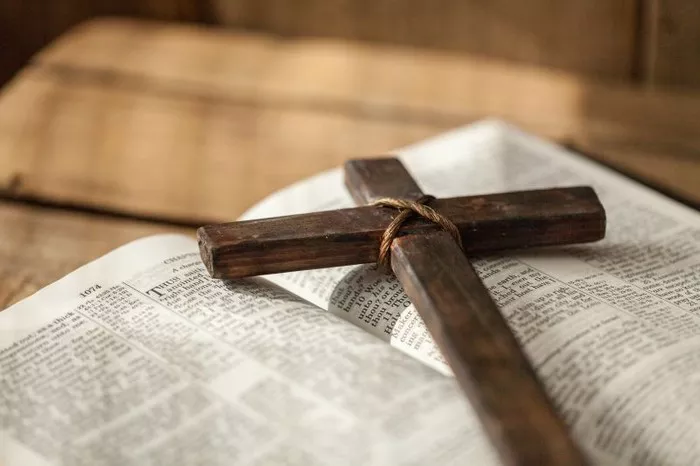Enoch’s lineage, particularly the identity of his father, has been a subject of considerable debate. Delving into the diverse interpretations and historical contexts, this essay aims to unravel the mystery surrounding Enoch’s father, providing precise answers based on scholarly research and textual analysis.
The Biblical Narrative: Enoch’s Lineage
In the biblical narrative, Enoch appears in the genealogies recorded in the Book of Genesis. Genesis 5:18-24 presents Enoch as the son of Jared, who in turn is the son of Mahalalel. The passage reads:
“When Jared had lived 162 years, he became the father of Enoch. After he became the father of Enoch, Jared lived 800 years and had other sons and daughters. Altogether, Jared lived a total of 962 years, and then he died. When Enoch had lived 65 years, he became the father of Methuselah. After he became the father of Methuselah, Enoch walked faithfully with God 300 years and had other sons and daughters. Altogether, Enoch lived a total of 365 years. Enoch walked faithfully with God; then he was no more because God took him away.”
According to this account, Enoch is the seventh generation from Adam, and his father is explicitly stated as Jared. However, this straightforward narrative does not preclude alternative interpretations and further exploration.
Extrabiblical Texts: Enochic Literature and Apocryphal Works
Beyond the canonical texts, a significant body of extrabiblical literature sheds additional light on Enoch and his family lineage. The most notable of these texts is the Book of Enoch, also known as 1 Enoch, an ancient Jewish religious work attributed to Enoch himself. This text provides a more detailed account of Enoch’s life, including his encounters with heavenly beings and his role as a prophet.
In the Book of Enoch, Enoch’s father is indeed identified as Jared, consistent with the biblical narrative. However, certain traditions within Enochic literature introduce intriguing variations and elaborations. For instance, some manuscripts of the Book of Enoch, particularly in the Ethiopian tradition, mention another figure named Baraq’el as Enoch’s father. This discrepancy has sparked scholarly debate regarding the authenticity and significance of such textual variants.
Moreover, the Book of Jubilees, another ancient Jewish text, presents a slightly different genealogy, tracing Enoch’s lineage back to Adam through Seth rather than Cain. In Jubilees, Enoch’s father is still Jared, but the text offers additional details about Enoch’s life and his role as a righteous figure.
These extrabiblical texts not only enrich our understanding of Enoch but also highlight the diversity of religious beliefs and interpretations within ancient Jewish communities. They demonstrate the fluidity and adaptability of religious narratives over time, as well as the complex interplay between canonical and non-canonical traditions.
Interpretive Perspectives: Theological and Historical Analysis
Scholars and theologians have approached the question of Enoch’s father from various interpretive perspectives, drawing on textual analysis, historical context, and theological considerations. While some adhere strictly to the biblical account, others explore alternative explanations and symbolic interpretations.
From a theological standpoint, Enoch’s lineage, regardless of his father’s identity, holds symbolic significance within the narrative framework of salvation history. Enoch is depicted as a righteous and faithful figure who “walked with God,” foreshadowing the theme of divine intimacy and communion that recurs throughout biblical literature. Thus, the precise genealogy, while historically intriguing, may be secondary to the theological message conveyed through Enoch’s character and narrative arc.
Historically, scholars examine the cultural and religious milieu in which the texts about Enoch were composed, seeking to understand the underlying motivations and influences shaping the portrayal of Enoch and his family lineage. The inclusion of Enoch in genealogies, whether in the Hebrew Bible or extrabiblical literature, reflects broader literary and theological conventions prevalent in ancient Near Eastern societies.
Furthermore, comparative analysis with parallel traditions and mythologies from neighboring cultures offers valuable insights into the development and transmission of Enochic traditions. Similarities between the figure of Enoch and other ancient Mesopotamian or Canaanite myths may indicate shared motifs or cultural exchanges, enriching our understanding of Enoch’s significance within the broader religious landscape of the ancient Near East.
Conclusion: Navigating the Enigma of Enoch’s Father
The question of Enoch’s father remains a tantalizing enigma, inviting scholarly inquiry and interpretive exploration. While the biblical narrative unequivocally identifies Jared as Enoch’s father, extrabiblical texts and interpretive traditions introduce intriguing variations and complexities. From the Book of Enoch to the Book of Jubilees, diverse sources offer nuanced perspectives on Enoch’s lineage, reflecting the rich tapestry of ancient Jewish thought and religious expression.
As we continue to unravel the mysteries of Enoch and his familial lineage, we are reminded of the enduring power of religious narratives to inspire, challenge, and provoke contemplation across cultures and generations. Whether through biblical genealogies or apocryphal elaborations, the figure of Enoch beckons us to delve deeper into the wellsprings of faith and imagination, inviting us to ponder the mysteries of divine presence and huAman destiny.
FAQs:
How is Enoch related to Adam?
Enoch is the great-grandson of Adam.
Is Noah related to Enoch?
Yes, Noah is related to Enoch. Enoch is Noah’s great-great-grandfather.
Who was Seth’s dad?
Seth’s dad was Adam.

